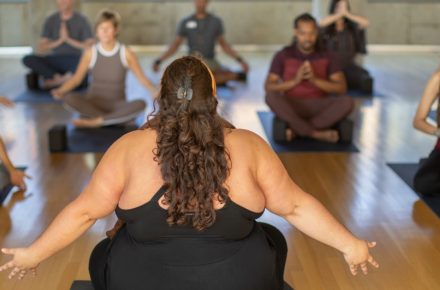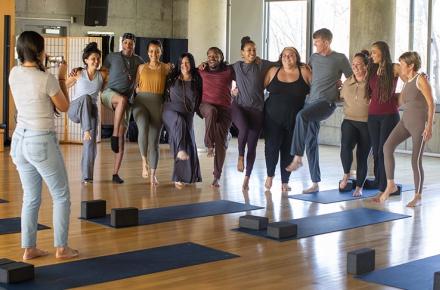Mindfulness and Perfectionism: A Guide to Getting Unstuck

My basement was a disaster for months, a dumping ground for junk: empty boxes, retired appliances and gadgets, books, old LPs, outdoor gear. Each time I walked through the clutter, I felt anxious. I also felt stuck. And, because my studio is down there, no creative work was getting done.
Perfectionism can be a limiting force in our lives. When we’re not mindful of its effects, it can keep us stuck, disappointed, and frustrated. Some forms of perfectionism can be valuable, helping us to achieve excellence. But the harmful and more pervasive form of perfectionism fosters a contingent self-worth that makes us vulnerable to shame, anxiety, and procrastination.
As I surveyed the landscape of my basement, I could feel the dread mounting. I noticed an internal pressure to be efficient. It wasn’t enough to get it done; I had to get it done in the most expedient way. If I didn’t, there might be something wrong with me. That’s how the perfectionist mind works.
Finally, I consciously decided to abandon the demand for efficiency, with its underlying pressure to be perfect. I shifted my attention away from outcome and toward process. The process was simply doing something. It didn’t matter if that action was the “right” action, as long as I was engaged. I moved a stack of old drawings and paintings onto the couch, even though I knew I’d have to move them again. I moved more objects from one part of the room to another. With that spaciousness, things started to fall into place, and, after some sustained effort, the room was in working order. It was far from perfect—but I got unstuck. Yes, I probably burned more calories doing it inefficiently, but, hey, what’s wrong with burning extra calories?
Mindfulness practice reveals how pervasive this pressure to be perfect is, and how I impose perfectionistic rules on myself. I’m happier when I give myself permission to be imperfect. I’m not a brain surgeon, accountant, or engineer. I don’t need to be that precise. My perfectionistic expectations are for spoken words in conversations, written words on the page, accomplishing items on my to-do list, and the quality of my mind’s moment-by-moment functioning.
Here are some guidelines for working with perfectionism when you find that you’re stuck, procrastinating, or beating yourself up for falling short of self-imposed expectations:
- Do something, anything. We are creatures of action and accomplishment. Perfectionism is a modern invention that didn’t afflict our hunter-gatherer ancestors. As long as you’re doing something, you’re bound to be better off than you would be remaining stuck.
- Aim for 80 percent. When you demand 100 percent from yourself, that pressure can actually get in the way of performance. When you relax into good enough, you may actually wind up doing better than 80 percent.
- Dismantle your aversion to imperfection by taking an interest in CQI: Continuous Quality Improvement. Shunryu Suzuki Roshi said, “You are perfect the way you are and there is always room for improvement.” Mistakes are an opportunity to learn. You can be grateful for them. You can commit yourself to grow from your experiences—both the ones that meet your expectations and the ones that don’t.
- Take a moment to reflect: “What’s the best way to take care of myself in this moment?” Sometimes you need to push through something; other times you need to relent. Perfectionism may demand that you always push, even when you’re exhausted. Put your work aside and come back to it later with a fresh set of eyes.
- Forget about having a perfect mind! Mindfulness practice will show you how wild, petty, and banal your thoughts are. That’s fine; your mind is just like anyone else’s mind.
As Suzuki Roshi pointed out, we’re perfect beings who do things imperfectly. Our actions are bound to include mistakes, miscues, and misdirections. Put your self-worth in the vault where nothing can touch it, especially whether or not you are perfect in any given moment. Life will be unnecessarily anguished if your self-esteem is on the line with the outcome of everything you do. When it is in the vault, it is protected from every contingency.
Mindfulness is the practice of being imperfect. Attention wanders from the present moment and must be retrieved over and over again. This is our practice of being alive. We’re always in the process of becoming, and we’re different in each moment. If the moment is perfect, it won’t last. If it’s imperfect, no worries—there’s another breath coming along the horizon. Everything adds up to be perfectly imperfect.
© Kripalu Center for Yoga & Health. All rights reserved. To request permission to reprint, please e-mail editor@kripalu.org.


































